
- Home
- News
- Analysis
- States
- Perspective
- Videos
- Education
- Entertainment
- Elections
- World Cup 2023
- Features
- Health
- Business
- Series
- Economy Series
- Earth Day
- Kashmir’s Frozen Turbulence
- India@75
- The legend of Ramjanmabhoomi
- Liberalisation@30
- How to tame a dragon
- Celebrating biodiversity
- Farm Matters
- 50 days of solitude
- Bringing Migrants Home
- Budget 2020
- Jharkhand Votes
- The Federal Investigates
- The Federal Impact
- Vanishing Sand
- Gandhi @ 150
- Andhra Today
- Field report
- Operation Gulmarg
- Pandemic @1 Mn in India
- The Federal Year-End
- The Zero Year
- Premium
- Science
- Brand studio
- Home
- NewsNews
- Analysis
- StatesStates
- PerspectivePerspective
- VideosVideos
- Entertainment
- ElectionsElections
- Sports
- Loading...
Sports - Features
- BusinessBusiness
- Premium
- Loading...
Premium
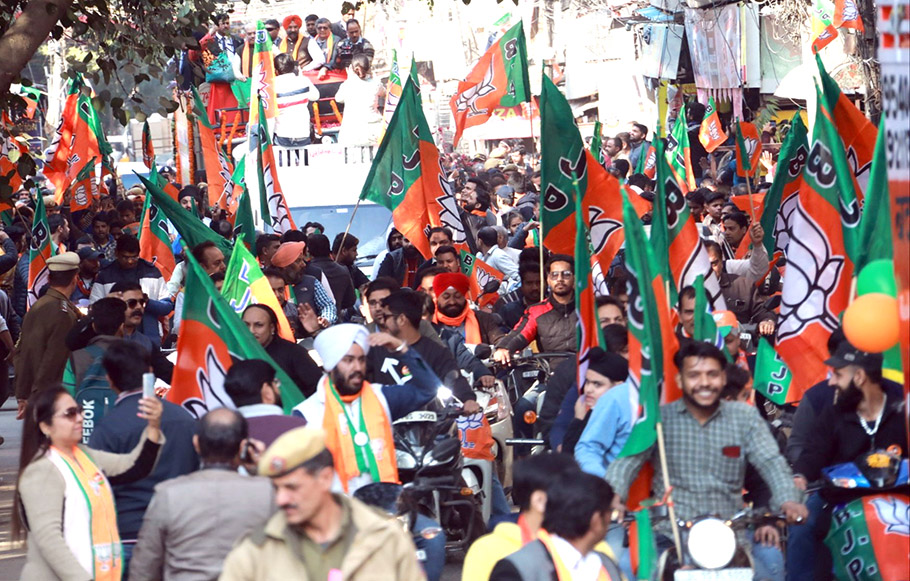
How RSS election specialists fanned out on ground zero for BJP campaign
Specialised in prior election work, the thousands of RSS workers are given talk material and punchlines that helped take the narrative set by top leaders such as Narendra Modi and Amit Shah, to the doorsteps of lakhs of Delhiites.

Two months ago, even before the schedule of the Delhi elections was announced, the Rashtriya Swayamsewak Sangh (RSS), the ideological fountainhead of the Bharatiya Janata Party (BJP), started sending its foot-soldiers from all over the country to the national capital. Their mission: to unseat Arvind Kejriwal-led Aam Aadmi Party (AAP) from Delhi’s saddle of power. Once the election date...
Two months ago, even before the schedule of the Delhi elections was announced, the Rashtriya Swayamsewak Sangh (RSS), the ideological fountainhead of the Bharatiya Janata Party (BJP), started sending its foot-soldiers from all over the country to the national capital.
Their mission: to unseat Arvind Kejriwal-led Aam Aadmi Party (AAP) from Delhi’s saddle of power.
Once the election date was announced, another group rushed to Delhi, swelling the number of such backroom players to over a thousand.
These foot-soldiers were picked on the basis of their past experience in managing election affairs for the BJP in other states, commitment, sincerity and loyalty to the Sangh’s ideology, according to an RSS leader.
For instance, an RSS functionary Jagdamba Mall, who has been part of the Sangh since 1971, was in the group that moved in lately. He was shunted to Delhi from Jharkhand, his previous election assignment. Mall had earlier worked in the BJP’s secondary election team in Haryana, Tripura, Meghalaya, Manipur and Assam too.
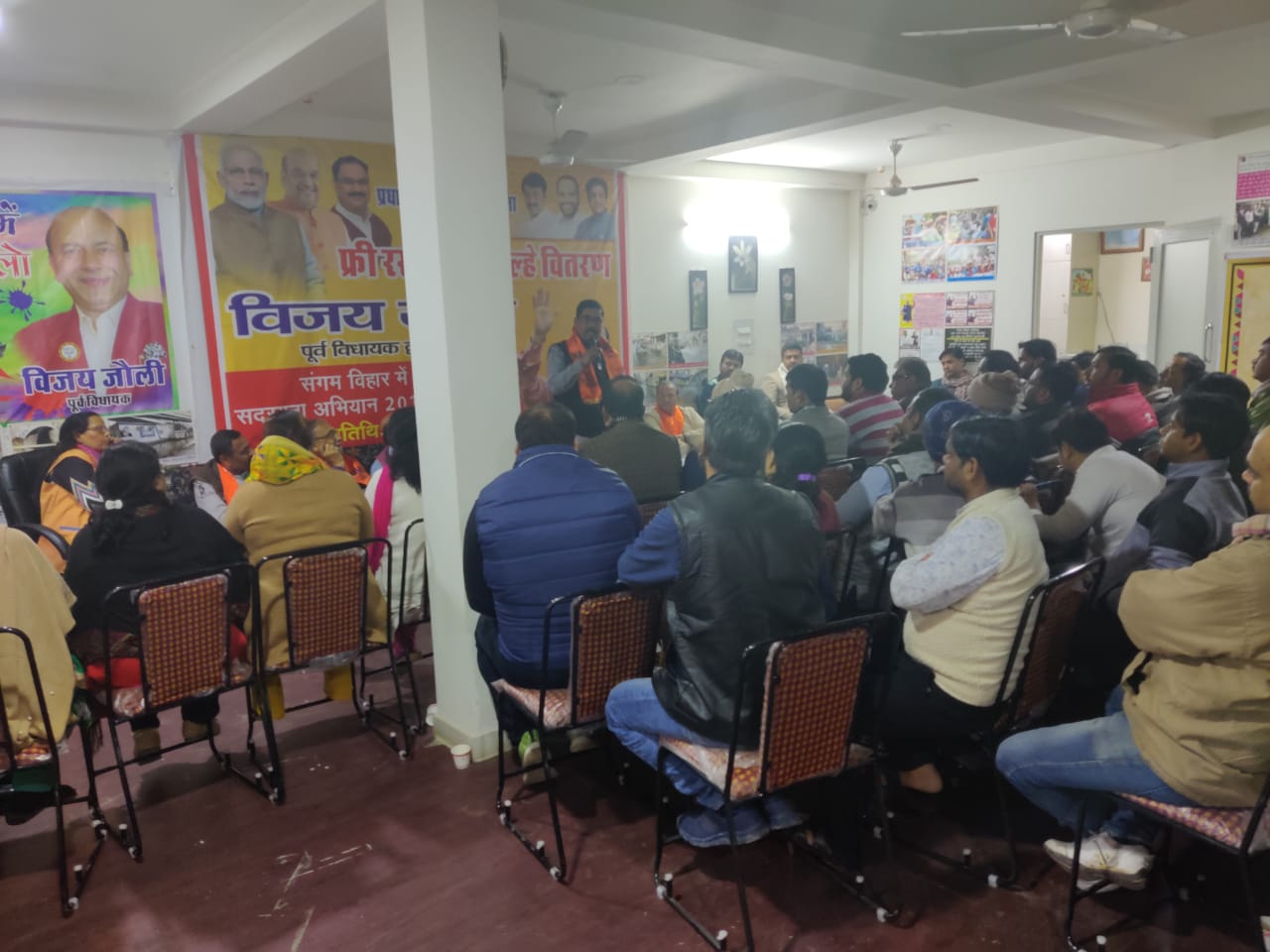
The mobilisation is part of a guerilla-like strategy the BJP adopts in all elections, wherein a core team launches the ‘assault’ while a secondary team provides backup support such as doing a recce of the targeted area, providing strategic inputs and then rushed into the ‘assault’ site to take advantage of the exploits.
As per this strategy, top BJP leaders led by Narendra Modi and Amit Shah launch a campaign blitzkrieg based on strategic inputs provided to them from ground zero by the RSS’s backroom players and foot-soldiers.
These players then spread across constituencies to carry forward the impact of the blitz, organising road-side meetings, door-to-door campaigns and group meetings with workers and volunteers.
Every day, they organise at least 4–5 meetings where they harp on issues raised by their senior leaders, almost like parroting the same rhetoric, so as to drill it into the minds of voters.
This was seen on the ground when the foot soldiers took cue following calls from leaders like Amit Shah to “reclaim Delhi” from “traitors” during the door-to-door visits and group meetings.
Even Shah’s remark was not off-the-cuff. The speech was scripted based on inputs provided by the advance party that had identified issues, based on surveys and research, which could whip up sentiments within a short span and swing votes, RSS insiders said.
Shaheen Bagh protesters, students of Jawaharlal Nehru University (JNU) and Jamia Milia Islamia are the favourite punching bags, apart from opposition leaders such as Arvind Kejriwal and Rahul Gandhi, in public outreach programmes.
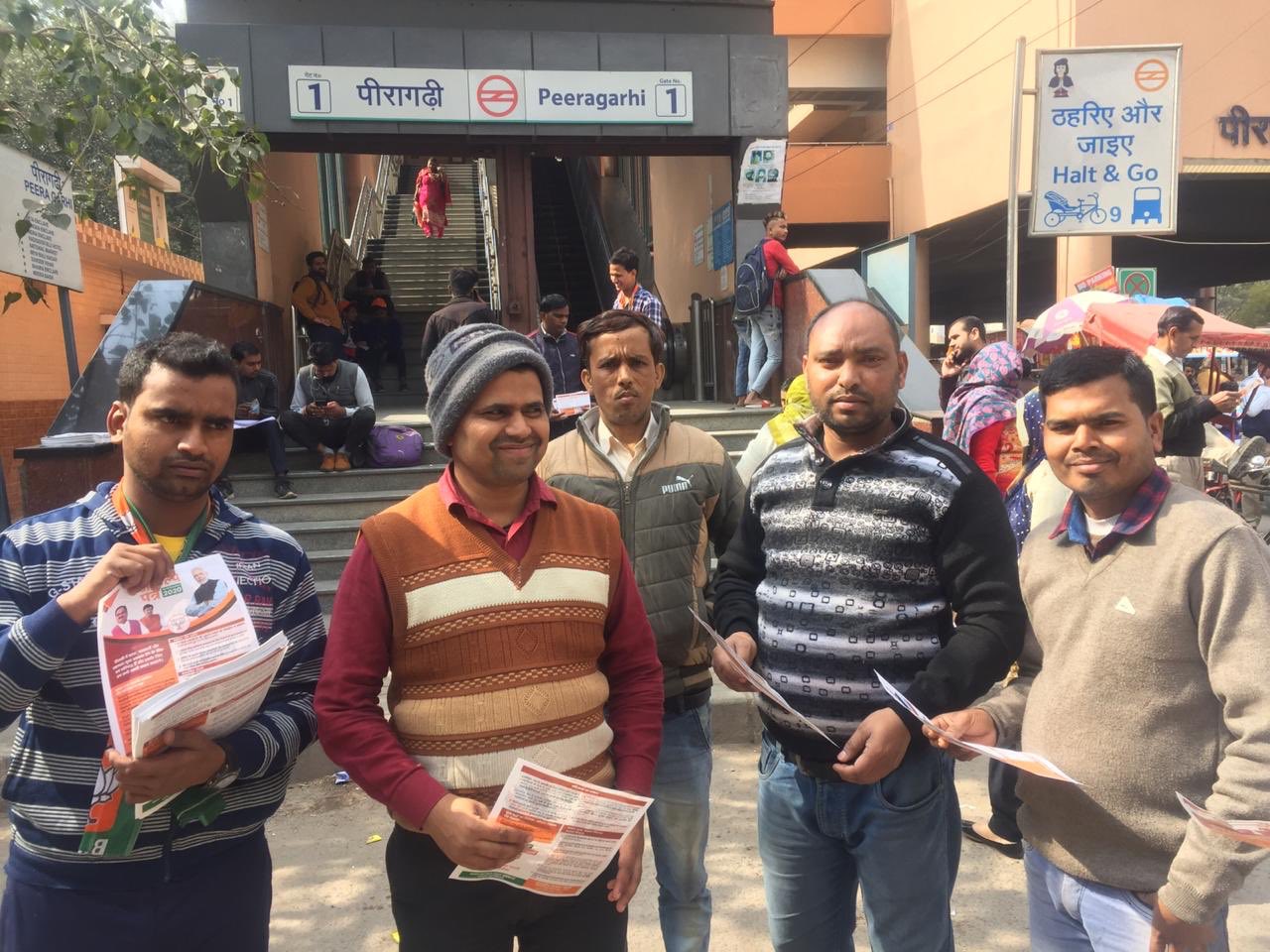
Another interesting aspect of this RSS-driven campaign is that every election is considered by the organisation as an opportunity to indoctrinate more and more people about its ideology. So, invariably in all the nukkad sabhas (square or street meetings), high-pitched rhetoric on national security, scrapping of Article 370 in Jammu and Kashmir, construction of Ram temples in Ayodhya, surgical strikes find mention prominently, though these issues have nothing to do with Delhi elections.
“Security of the country is paramount. If the country is secured from both internal and external enemies, then economy, jobs and other problems will be automatically taken care of,” a member of the two-tier constituency level campaign committee was heard telling a group of BJP workers at a party election office at Kotla Mubarakpur under Kasturba Nagar assembly constituency.
Such group meetings are conducted almost daily in the late evenings where BJP workers and supporters, mostly youth, are briefed and re-briefed about the purported threat posed by “anti-nationals” and how it is imperative for the “nationalist” forces to mobilise themselves to protect the country.
These RSS functionaries, who work closely with BJP cadre, also chalk out a constituency-based strategy and then get it implemented with reinforcements to plug gaps.
For example, in a last-minute bid to win over lower-middle-class voters, mostly comprising Purvanchalis of Rohtas Nagar assembly constituency, an unscheduled “Purvanchal Sammelan” was hurriedly convened on February 1 near Durgapuri Chowk based on inputs provided by the RSS team working on the ground.
In the same constituency, Assam chief minister Sarbananda Sonowal promised that if the BJP formed the government, a Namgarh, a place of worship, would be built in Delhi for the Assamese people and a road in the capital city would be named after Srimanta Sankardev, a 15th-century Assamese polymath and saint, reinforcing the party’s ethnicity-driven campaign.
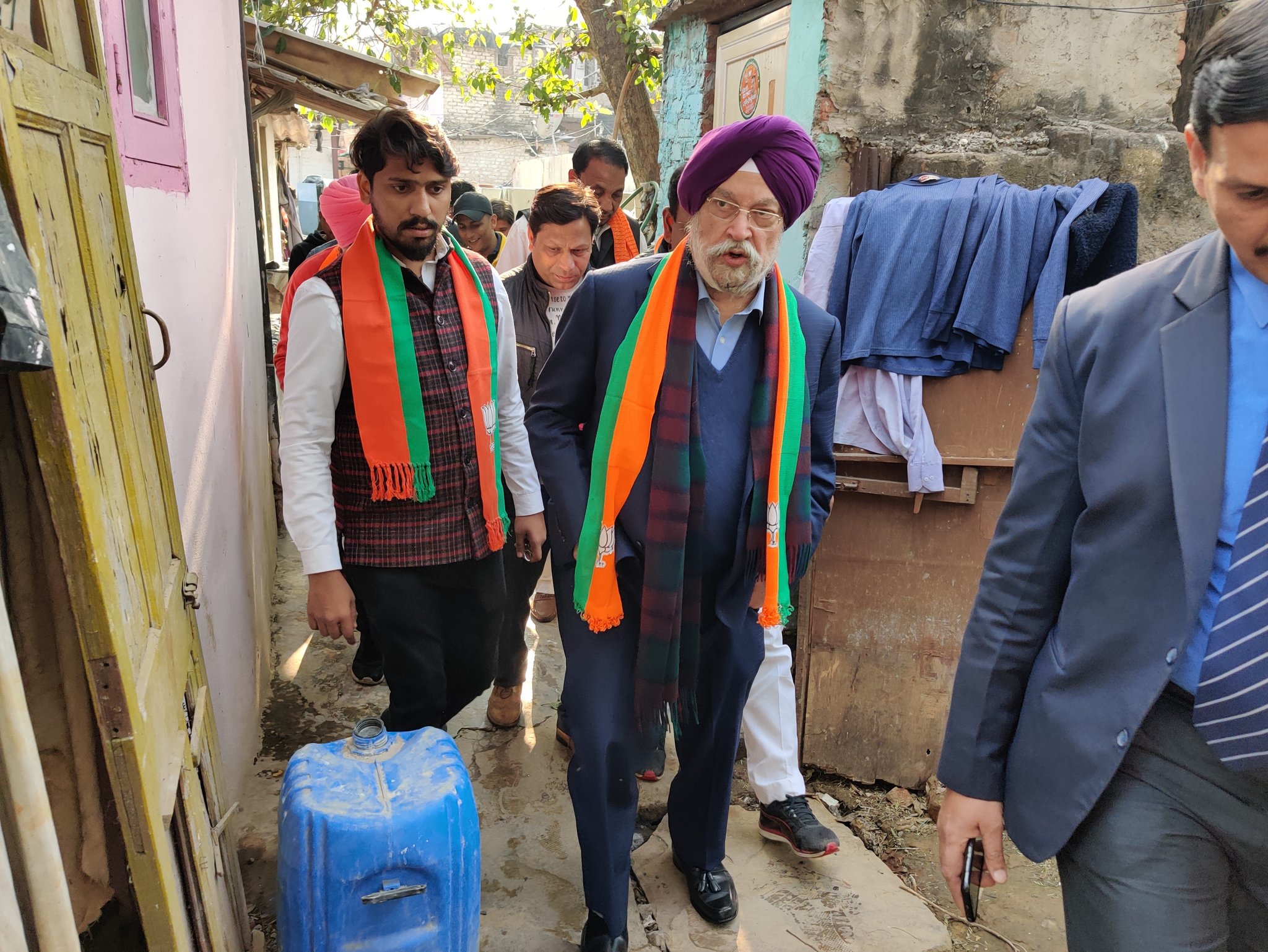
The team reportedly felt that along with its Hindutva push, the ethnic identity of a large section of voters of the constituency needed to be played upon.
For the February 8 Delhi elections, 70 crack teams — one for each assembly constituency — have been constituted with these “election veterans”. They are put under the direct charge of BJP’s state general secretary (organisation), Siddharthan, a senior RSS leader himself.
Each assembly team has a two-tier structure with a Pravashi Karyakarta as in-charge of the entire constituency, which is again divided into several mandals (blocks) according to its size. A minimum of four mandals are clustered together and put under the charge of a Vistarak (promoter) or a Pracharak (propagator).
The idea is to constantly motivate, guide and instruct BJP cadre and volunteers, many of them again drawn from the RSS, deployed in 14,000 booths across 70 Assembly constituencies to establish personal contact with as many voters as possible. The main target groups are housewives and youth.
“Every 2–3 days, a coordination meeting is held between the Pravashi Karyakarta and Vistaraks of a constituency to evaluate the ground situation,” the RSS leader said.
In the meeting, Vistaraks are also given talk materials, punch lines and key issues that are to be highlighted during the campaigning done both physically on the ground and virtually on social media (the RSS-BJP also has a separate social media team in every constituency to run a parallel campaign on Facebook, Twitter, WhatsApp and Instagram).
The Vistaraks also give their feedback on the issues to which voters are relating more, weak points of the party both in terms of organisational capacity and narratives. On the basis of these feedbacks, the Sangh guides the BJP to chart its election strategy.
Sources said it was on the basis of these feedbacks that the BJP made midway course correction and stopped raking up the issues of freebies offered by the AAP government. Initially, the BJP’s line was that the freebies like water and electricity would not help solve the problems of the state, but later it decided not to make this an election plank.
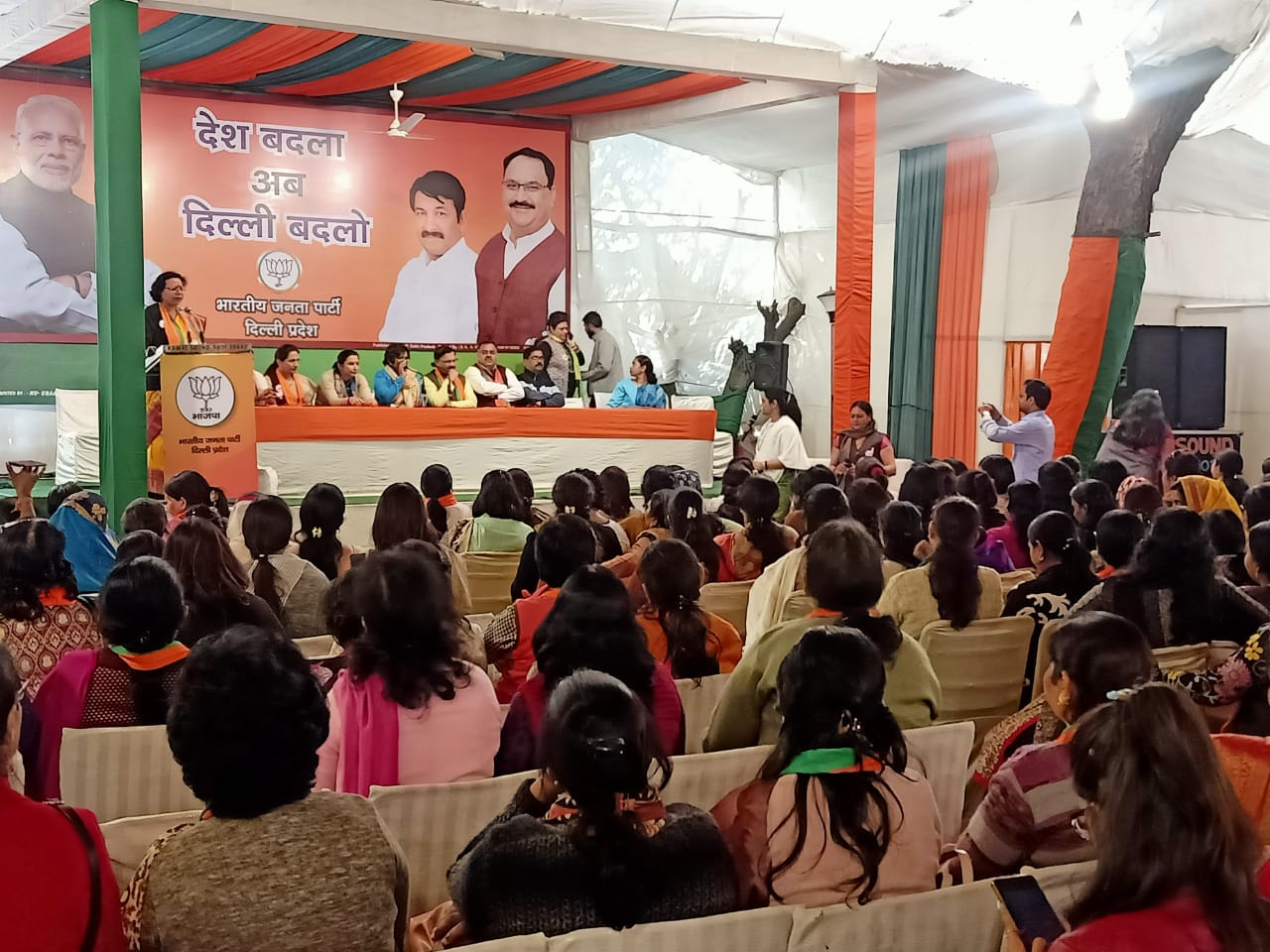
Similarly, the BJP has also gone soft on mohallah clinics (local clinics), considered to be a “relatively successful” scheme of the AAP government.
An RSS pracharak who has come from a neighbouring state to “supplement” the BJP’s efforts, said the party provides for his accommodation, food and also a vehicle for his movement.
“There is no financial remuneration. We do this for our organisation’s ideology,” the RSS functionary, a retired school teacher from Rajasthan said.
With so much emphasis on ideology, it’s but natural that the crux of the BJP’s campaign revolves around the Sangh’s ideology of Rashtravad (nationality) and Hinduvad (Hindutva).

